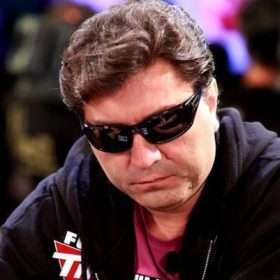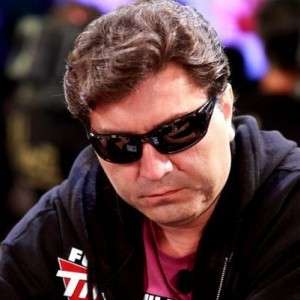German Court Sentences Ali Tekintamgac for Poker Cheating
One-time World Poker Tour Barcelona “winner” Ali Tekintamgac’s cheating ways may be at an end, now that a German court has finally sent the high-stakes poker fraud to prison. Tekintamgac has been sentenced to three years and five months in prison after the Landericht Augsberg (Augsberg District High Court) found him guilty of five counts of fraud connected to his cheating at a German casino.
Tekintamgac’s cheating history stretched back several years, and he was found guilty of heading up a ring that targeted wealthy players, many of eastern European descent, at an Augsberg-area casino. Key to the case was the discovery of several electronic devices designed to assist in cheating, found in the car of Tekintamgac associate and poker player Kadir Karabulut. Karabulut himself has been missing since March of 2013, and has likely either been a victim of violent crime himself or has disappeared to evade arrest and prosecution.
Prosecutors in the Augsburg case believed that Tekintamgac and his associates cheated at poker in many more instances than those charged in the Augsburg case.
Tekintamgac’s poker career and cheating allegations marred the major European event scene, particularly in 2010 and 2011. It was in 2010 that Tekintamgac emerged as the winner at EPT Barcelona, winning €278,000 (then about USD $343,000), only to have allegations of cheating soon emerge. It now appears likely that not only did Tekintamgac cheat during that event, but that he and his accomplices likely financed those high-stakes apearances through earlier cheating schemes.
Here’s a link to the final hand of that EPT event, in which one of Tekintamgac’s alleged accomplices, a fake blogger (the stocky photographer in the grey t-shirt), appears to signal the opponent’s hole cards to Tekintamgac, who already had his foe severely outchipped at that point. The photographer may in fact be the same “Eddy” who testified in the Augsburg court case against Tekintamgac in exchange for a suspended sentence.
That video (and presumably some other footage from the same EPT event) surfaced as Tekintamgac was ejected from the final table of a 2011 Partouche Poker Tour event in Cannes, France. The PPT never released footage of that event showing “Ali T.”‘s presumptive cheating, though a similar scheme involving the assistance of one or more fake bloggers, peering at the cards of opponents while pretending to take pictures, was believed to have been employed.
In an amazing display of chutzpah, Tekintamgac later filed suit against the Partouche tour and its organizers. Tekintamgac sought 1.5 million euros in damages for loss of income and damage to reputation, the accumulated video evidence (both released and unreleased) notwithstanding. That suit doesn’t appear to have gone anywhere; it was either dismissed or quietly dropped in the face of the evidence, Karabulut’s unsolved disappearance and Tekintamgac’s other continuing troubles.
As for Tekintamgac, being no longer welcome on the European tourney scene, it was back to high-stakes cash games in Eastern European casinos and various underground rooms, where he seems to have talked his way back into games despite his reputation. The Augsburg case presents itself as evidence that the cheating continued, Tekintamgac’s claims of innocence notwithstanding.
One of the best summaries of the ongoing Tekintamgac saga can be found at the German site Hochgeport, which has provided several recent updates. (Note: Some of the Google Translate renditions from the initial German-language features can be rough.) The Tekintamgac case and a similar cheating scandal that occurred at another PPT event, this time involving two French players, Jean-Paul Pasqualini and Cederic Rossi, fully illustrate the problems that gaps in oversight at a high-stakes poker tournament can allow to occur. Unlike Tekintamgac, however, Pasqualini and Rossi have never been charged in connection with the evident poker cheating.





















COMMENTS